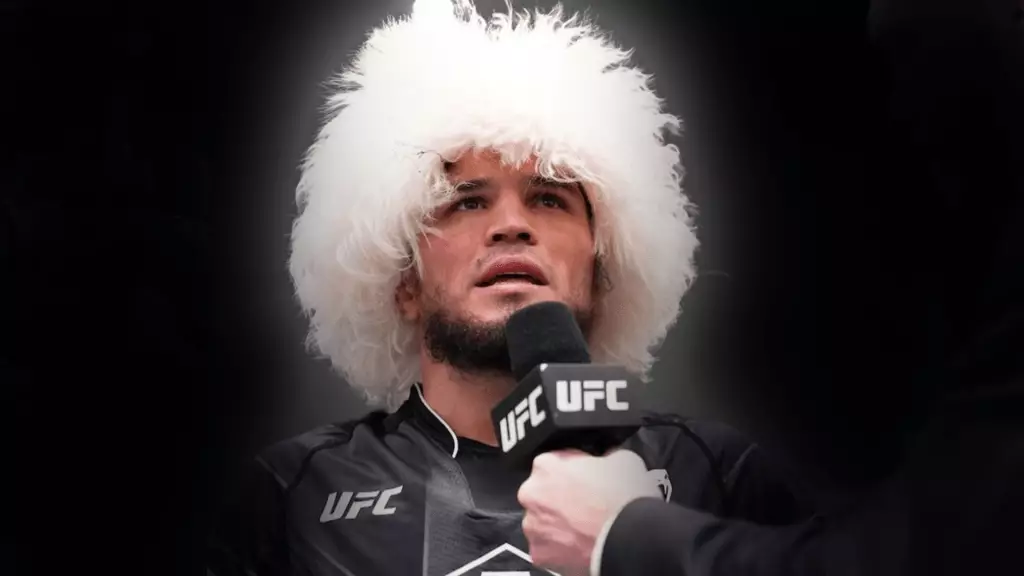The bantamweight division in the UFC is at a critical juncture, characterized by the increasing rivalry between Umar Nurmagomedov and the current champion, Merab Dvalishvili. Nurmagomedov, boasting an undefeated record of 18 wins, is eager to solidify his position as the No. 1 contender. His victory over Cory Sandhagen in August marked his first UFC headliner, a win that propelled him into the title conversation. Meanwhile, Dvalishvili’s rise to the championship following his win against Sean O’Malley places him at the apex of the division, yet tensions are brewing between these two fighters.
Nurmagomedov has publicly expressed his thoughts on Dvalishvili’s reluctance to engage him, suggesting that the champion is deliberately evading a matchup. This perception raises critical questions about the nature of competition in mixed martial arts. As Nurmagomedov remarks, Dvalishvili’s actions speak volumes; dismissing him as a contender even after assuming the championship title shines a light on their contrasting views of legitimacy and honor within the sport. The contention is further exacerbated by the scheduling coincidence of Ramadan, during which Nurmagomedov intends to abstain from competition, giving Dvalishvili an apparent avenue to sidestep an imminent showdown.
Timing in professional sports can be the deciding factor between seizing opportunity and allowing prospects to slip away. Nurmagomedov’s insistence on remaining active is a strategic move; he conveys a strong desire to fight before the onset of Ramadan. The fact that he is considering alternatives, including a grappling match, illustrates his determination to remain in the spotlight and continue improving his skills. Dvalishvili’s choice of timing regarding a potential fight could significantly alter the competitive landscape, either distinguishing him as a proactive champion or leading to perceptions of cowardice if he continues to defer.
Nurmagomedov’s recent remarks about Sean O’Malley and Dvalishvili highlight his perspective on the caliber of competition within the division. He expresses a stark preference for fighters who actively engage, suggesting that both O’Malley and Dvalishvili possess weaknesses for him to exploit. Such an analysis can be viewed as both confidence in his skills and a strategic assessment of his potential opponents. By positioning himself against what he perceives as a lack of depth in talent, Nurmagomedov effectively bolsters his own narrative as a deserving contender.
As the bantamweight division experiences this rising tension, one cannot help but wonder what the future holds for both Nurmagomedov and Dvalishvili. Nurmagomedov’s urgent desire to compete could lead to various outcomes in the coming months. Should Dvalishvili fail to agree to a match, the landscape could shift unexpectedly—for Nurmagomedov to perhaps face other opponents or seize opportunities that come his way. The ongoing saga reflects not only their personal ambitions but also the broader drama inherent in the world of MMA, where stakes are high, and every decision counts. With time passing and each fighter eager to carve their legacies, the question remains: will they meet in the octagon, or will circumstances lead to yet another chapter of unresolved rivalry?

